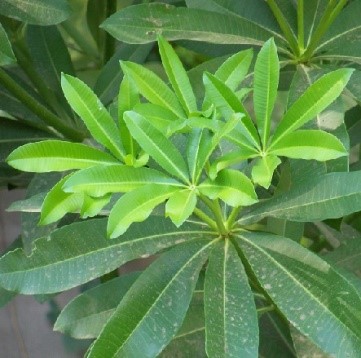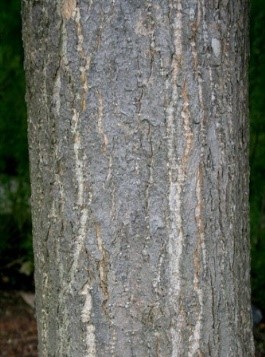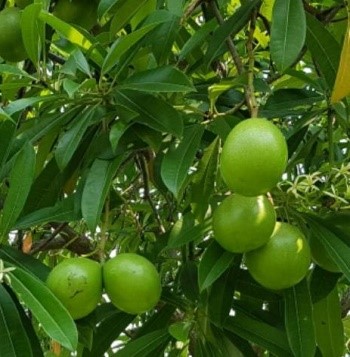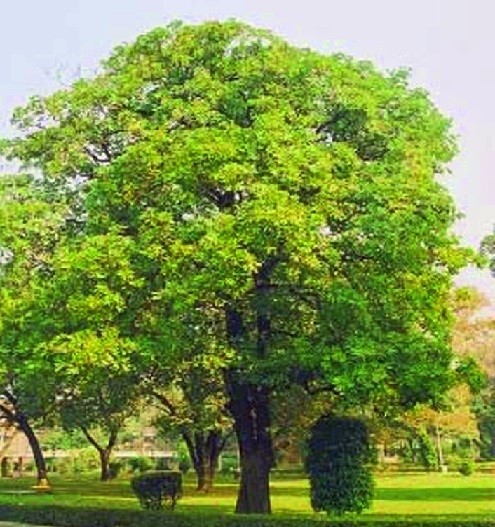Trees
Alstonia scholaris R. Br.
Alstonia scholaris R. Br.
Description :
A
large evergreen tree. The branches are arranged in whorls along a buttressed
trunk. Leaves are simple and arranged in whorls of 4 to 7. Each egg-shaped leaf
is between 10 to 17 cm long and 4 to 7 cm wide. The leaves are leathery, shiny
on top and a dull green underneath. The bark is grey and has vertical lines and
is fairly smooth. The bark when wounded exudes a milky fluid. The flowers are
green to white, borne in bunches and are small. It flowers in December to
March. The fruit is a long tube usually occurring in pairs. The fruit matures
between May and August. It has no known insects or disease problems. It is
reproduced from seed. Seeds are 6 mm long and have a fringe of hairs at each
end. Seed would be available from the Punjab Farm Research Institute, (PFRI) Gujranwala,
Faisalabad. Growth is slow, with an annual diameter growth of 1.5 cm. Close grained
with greyish white, creamy color sapwood having high density.
Distribution :
In
Pakistan it is planted extensively in the Punjab as an avenue tree and in
gardens. It is common in Lahore and Kharian Cantonment. An intolerant tree that
does not do well in shade. It requires a precipitation zone of 600 to 1000
mm/yr. It prefers a semi-arid, hot sub-tropical climate with a temperature
range of 4 to 42°C at elevations below 1000m.
Uses :
The tree is planted as an ornamental, but the bark is used for medicinal
purposes. It is an excellent evergreen shade tree. Can also be used for ornamental
and medicinal purposes.



